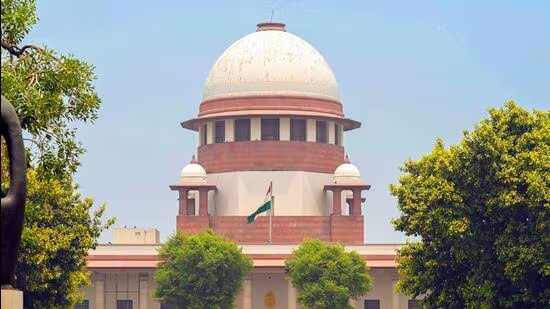3 october 2024 : On Thursday, the Supreme Court abolished the longstanding practice of caste-based discrimination in prisons, ruling that provisions in prison manuals that uphold such discrimination are unconstitutional and calling for immediate reforms across all states.
The verdict, delivered by a bench led by Chief Justice of India (CJI) Dhananjaya Y Chandrachud, focused on entrenched discriminatory practices affecting marginalized communities, including scheduled castes (SC), scheduled tribes (ST), and de-notified tribes within prison systems.
The court issued a series of directives to both the Union government and state authorities, ensuring that no inmate is assigned work or housing based on caste. The bench emphasized that “discrimination based on caste, both direct and indirect, is a relic of colonial rule,” and reiterated that the Constitution mandates humane treatment for prisoners, respecting their mental and physical well-being.
The bench, which also included justices JB Pardiwala and Manoj Misra, mandated states that still allow such discrimination to promptly amend their regulations and submit compliance reports within three months. The Union government was instructed to revise the model prison rules of 2016, which may promote caste-based discrimination by permitting states to classify individuals as “habitual offenders.”
The court asserted that assigning labor based on caste—such as relegating marginalized castes to menial tasks like cleaning while reserving cooking for higher castes—violates Article 15 of the Constitution, which prohibits caste discrimination. It stressed that these practices do not contribute to the reformation and rehabilitation of prisoners.
“Prison manuals must not perpetuate caste-based prejudice by assigning degrading tasks to certain groups… No group is born as a scavenger class, nor should any group be restricted to such work,” the court stated.
The judgment referenced Article 17, which abolished untouchability, declaring that assigning menial labor based on caste amounts to a form of untouchability incompatible with a constitutional democracy.
The ruling criticized provisions in the Uttar Pradesh Prison Manual that allowed certain castes to be assigned menial work, highlighting how these practices reinforce class-based prejudices. The court stated, “The use of terms like ‘menial’ to target so-called lower castes cannot survive under our constitutional framework… These practices not only degrade human dignity but also violate Article 23, which prohibits forced labor.”
The court condemned the classification of habitual offenders, particularly the targeting of de-notified tribes as members of criminal groups, declaring such categorizations unconstitutional and instructing all states to eliminate references to habitual offenders in their prison manuals. CJI Chandrachud remarked, “Members of denotified tribes have historically been treated as criminals from birth. This classification is an affront to their dignity and a gross violation of Article 21, which guarantees the right to life with dignity.”
The Supreme Court directed states to revise their prison manuals to align with its ruling and ordered the removal of caste references from convict and undertrial registers, prohibiting prisoners from being assigned hazardous tasks such as sewer cleaning.
Recognizing the issue of discrimination in prisons, the court has scheduled a compliance hearing in three months, requiring states to report on the implementation of its directives.
In January, the court had issued notices to the Union home ministry and other relevant parties, requesting solicitor general Tushar Mehta to address the concerns raised by petitioner Sukanya Shantha, a journalist from Maharashtra.
The petition, filed under Article 32 of the Constitution, aimed to highlight the ongoing discriminatory rules in prison manuals that reinforce caste hierarchies, directly violating constitutional principles of equality. The petitioner sought clear directions to ensure that all prison manuals and practices are reformed to eliminate any form of caste-based discrimination.

